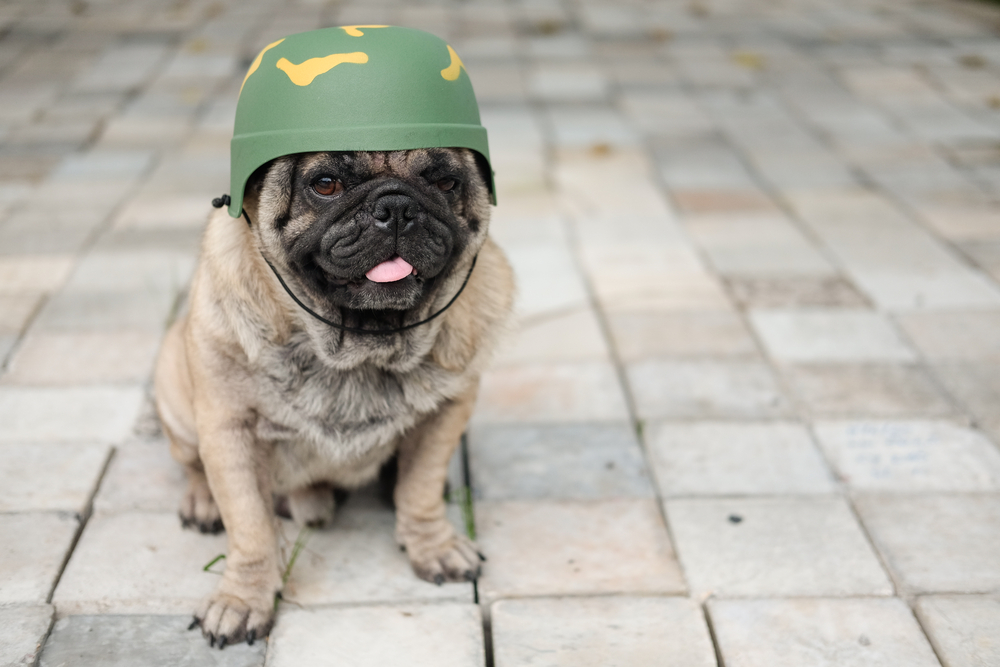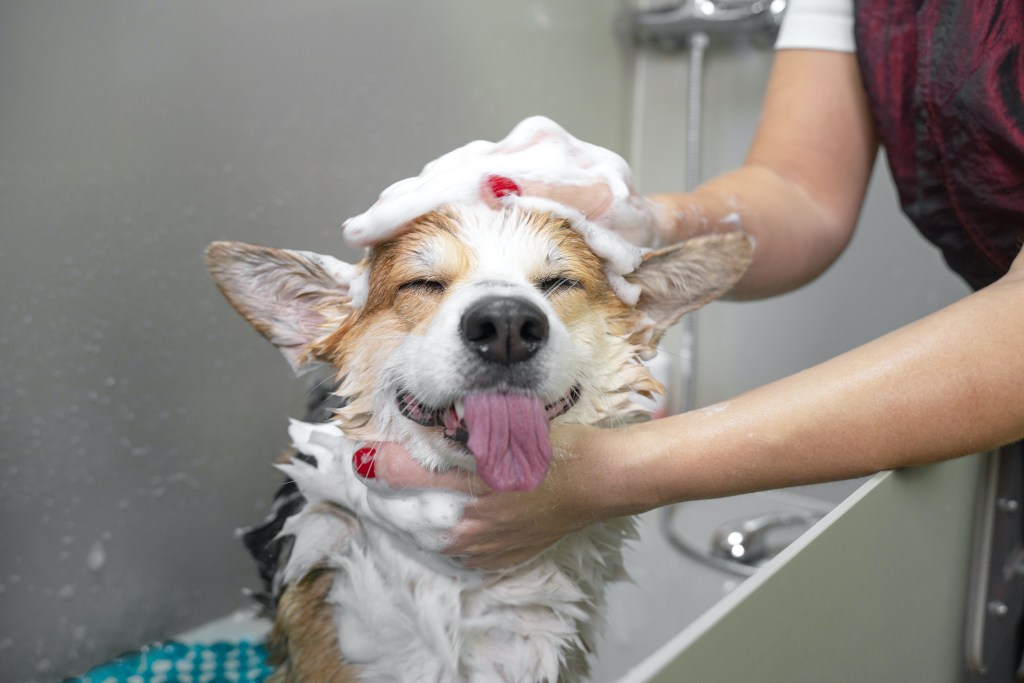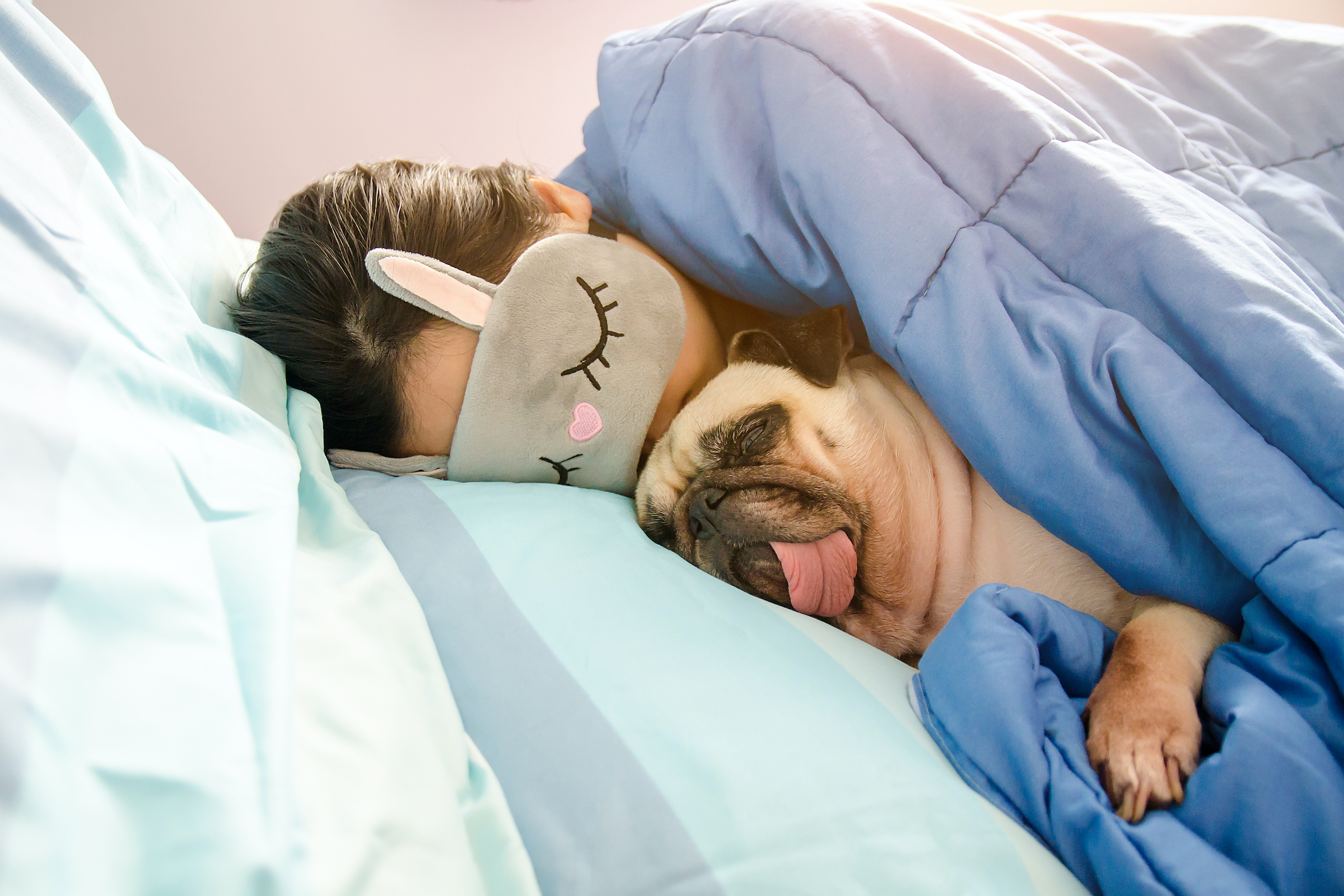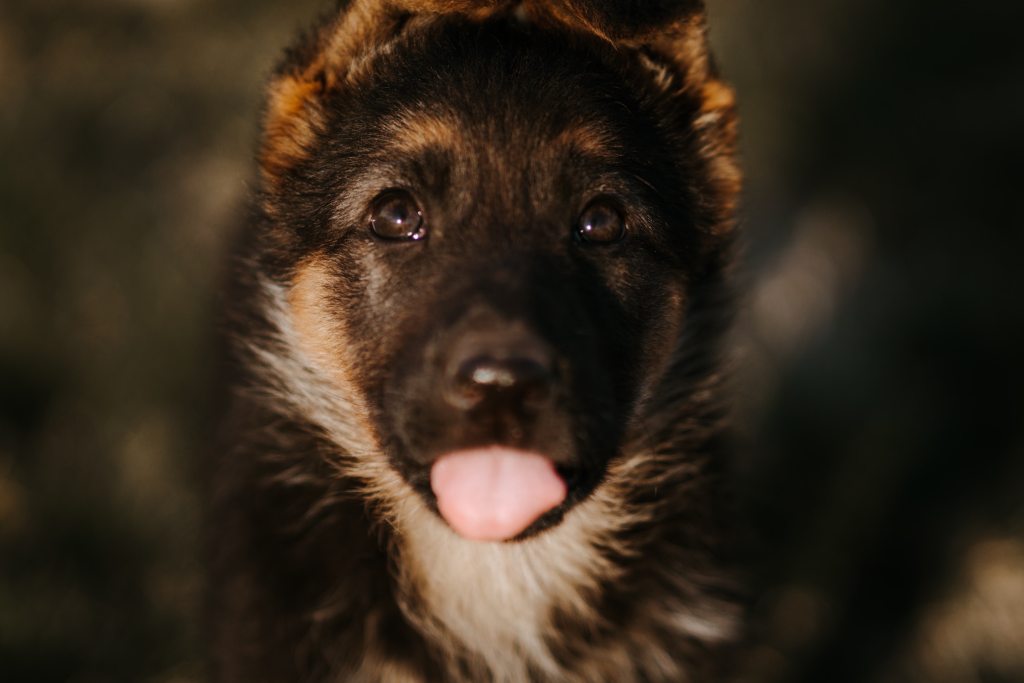
There’s nothing cuter than a “blep” but what does it mean? Whether you first heard the term blep on the internet (it is meme-worthy, after all), or are learning of it for the first time, you’re in for a treat. Bleps are positively adorable! The term started gaining online traction in the late 2010s, though it’s no less popular today. The common canine behavior it’s based on, however, is a habit as old as time: sticking out a tongue. Yep, a dog with its tongue out is enough to break the internet!
It’s pretty dang cute, after all, but it’s not always easy to figure out why a dog’s tongue is sticking out. Don’t worry though, pet parents — this is a great place to start! This is everything you need to know about bleps and what they mean.

What is a blep? How about a mlem?
Besides being one of the most popular terms used in pet-related social media, a blep refers to when an animal sticks their tongue out of its mouth only slightly. Braxton’s Animal Works describes the action as “leaving the tongue, usually the tip, outside the mouth unconsciously.” Many pet owners will notice it while their buddy is sleeping, or even after!
Of course, not every incident of tongue-sicking-out is considered a blep. Another popular online term — “mlem” — refers to the act of sticking out the tongue as if the dog is licking … or at least in a licking-type motion. Lastly, a dog’s tongue could just hang out of its mouth completely, though the internet hasn’t coined a phrase for that yet (but you’ll see quite a few of these shots labeled “derp”)!

Should I be concerned if my dog sticks out their tongue?
As startling as it can be to find your furry friend chilling with their tongue outside of their mouth, you shouldn’t need to worry. Most reasons for a dog blepping are totally harmless! Still, Dr. Holly Ahlgrim of DoveLewis Veterinary Emergency and Specialty Hospital told The Dodo that a veterinary examination may be a good idea if this is a new behavior for your pup. Needless to say, you should also seek support if your buddy seems at all uncomfortable. Besides, it can bring you peace of mind to know what’s going on with your furry friend.
Once you have a “diagnosis” — remember, there may be no problem at all to identify — you can make sure your dog stays as comfortable as possible. Hydration is key for blepping pups! Having the tongue resting outside of the mouth can lead to immense dryness at times, so investing in a water fountain for your pet might be a smart idea.
As Dr. Linda Simon, MVB, MRCVS, explained to Wag!, there are times when a dog’s tongue protrusion can’t be prevented or fixed. Luckily, these tend to be the times when it also causes no discomfort — like with hanging tongue syndrome. That’s just one reason why dogs blep, though, so keep on reading!

Does a tongue out mean a happy dog?

Why do dogs stick out their tongues? Here’s what experts have to say
Maybe you only see the tip of your dog’s tongue after they nap, or maybe it’s hanging completely out 24/7. As you can probably guess, these different situations have different causes!
Relaxation can cause the tongue to extend out of the mouth
This is probably what’s going on if you notice your dog’s tongue during or after their naps, but it could happen anytime. Older dogs might be more likely to blep from relaxation if they’ve started experiencing any age-related muscle decline. Neuropathy and other neurological issues can also contribute. As Dr. Ahlgrim suggested, it’s a good idea to visit the vet if this is a new or sudden behavior.
Hanging tongue syndrome is self-explanatory, but it’s nothing to worry about
Some dogs may also suffer from hanging tongue syndrome, which is exactly what it sounds like. Pilchuck Veterinary Hospital’s Dr. Kevin Wilson explained to The Seattle Times that this can have either genetic or non-genetic causes, most of which aren’t cause for concern.
A lot of the dogs that deal with “hanging tongues” are brachycephalic, or “smoosh-faced.” These are breeds like pugs, Shih Tzus, and bulldogs, though the list is much longer than these three. As Dr. Wilson said, “These dogs have functional tongues, but, because of genetics, the tongue may be too large for the oral cavity, an abnormal jaw bone doesn’t support the tongue or missing teeth allows the tongue to slip out through the gap.” If it’s genetic, you’ll likely notice it when your dog is still young.
Dental issues can also be a cause of tongue protrusion
Of all the non-genetic causes of hanging tongue syndrome, or even regular blepping, dental problems are the most common. Dr. Wilson explained that, when a dog is missing teeth or even just support in the lower jaw, the tongue can roll or hang out of the mouth. Of course, it’s a good idea to have these dental concerns addressed.
By keeping an eye on your dog’s blepping habits and their general health, you can ensure they stay comfy while remaining as cute as can be. Then you can snap as many photos as possible!
Editors' Recommendations
- Why does my dog have a bald patch on their tail? Here are the answers you need
- Looking for signs your dog has ticks? These telltale symptoms mean you have a flea or tick problem
- What is the best food for older dogs? These 6 vet-approved kibbles and canned foods won’t steer you wrong
- Is your dog’s breathing problems old age or something else? What to know
- What you need to know about dogs with blue eyes




